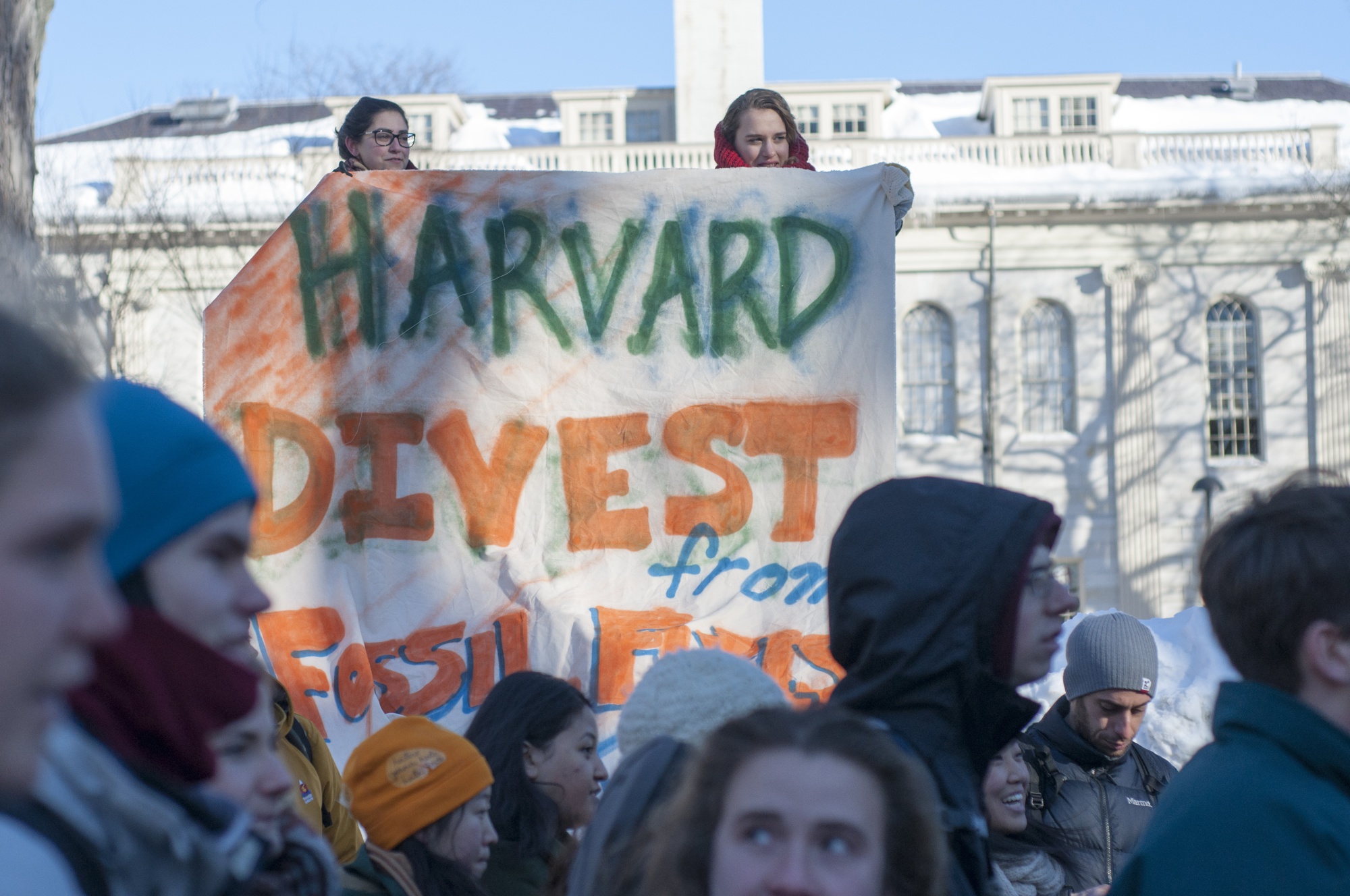
News
Harvard Grad Union Agrees To Bargain Without Ground Rules

News
Harvard Chabad Petitions to Change City Zoning Laws

News
Kestenbaum Files Opposition to Harvard’s Request for Documents

News
Harvard Agrees to a 1-Year $6 Million PILOT Agreement With the City of Cambridge

News
HUA Election Will Feature No Referenda or Survey Questions
MIT Committee Recommends Targeted Fossil Fuel Divestment

MIT researchers recommended that the school divest its endowment from some fossil fuel companies—specifically, coal and tar sands—in a report released this week.
The committee was tasked by MIT administrators to “take the pulse” around MIT in regards to divestment and climate change, according to MIT professor and committee member Kerry Emanuel.
The report urged MIT’s central administration to divest from coal and tar sands specifically because they are “among the most carbon-intensive and environmentally hazardous fossil fuels,” and because this method of targeted, as opposed to blanket, divestment would pose less risk for losing “engagement opportunities with companies.”
The report comes as environmental activists at Harvard and elsewhere call for colleges and universities to divest from fossil fuel companies. In April, the activist group Divest Harvard staged a week-long protest, blocking entrances to buildings on campus and urging administrators to divest the University’s $35.9 billion endowment from fossil fuels.

The protest was unsuccessful; University President Drew G. Faust’s did not change her stance on divestment, which she has long argued is not “warranted or wise.” Harvard’s endowment, she wrote in a 2013 open letter, is “not an instrument to impel social or political change.”
According to University spokesperson Jeff Neal, Faust has not changed her stance on fossil fuel divestment since the MIT report’s release.
Still, while Harvard has opposed such a move, some peer schools have moved to divest from some fossil fuels in recent months. Last year, Stanford moved to divest from coal, and Georgetown recently followed suit.
Emanuel said Harvard should commission a similar task force, arguing that divestment is an issue “too important not to involve the community.”
—Staff writer Jalin P. Cunningham can be reached at jalincunningham@college.harvard.edu. Follow her on Twitter @JalinCunningham.
Want to keep up with breaking news? Subscribe to our email newsletter.
Most Read
- 3 Harvard Students, 2 Recent Grads Had Visas Revoked
- It’s Time To Disband the PSC — Permanently
- Harvard Advises International Students To Reconsider Travel, Assess Risks From Pro-Palestine Speech
- As Trump Waits for Harvard’s Reply, Governing Boards Meet in Harvard Square
- Billionaire Investor Gerald Chan Under Scrutiny for Neglect of Historic Harvard Square Theater
From Our Advertisers

Over 300+ courses at prestigious colleges and universities in the US and UK are at your disposal.

Where you should have gotten your protein since 1998.

Serve as a proctor for Harvard Summer School (HSS) students, either in the Secondary School Program (SSP), General Program (GP), or Pre-College Program.

With an increasingly competitive Law School admissions process, it's important to understand what makes an applicant stand out.

Welcome to your one-stop gifting destination for men and women—it's like your neighborhood holiday shop, but way cooler.

HUSL seeks to create and empower a community of students who are seeking pathways into the Sports Business Industry.
